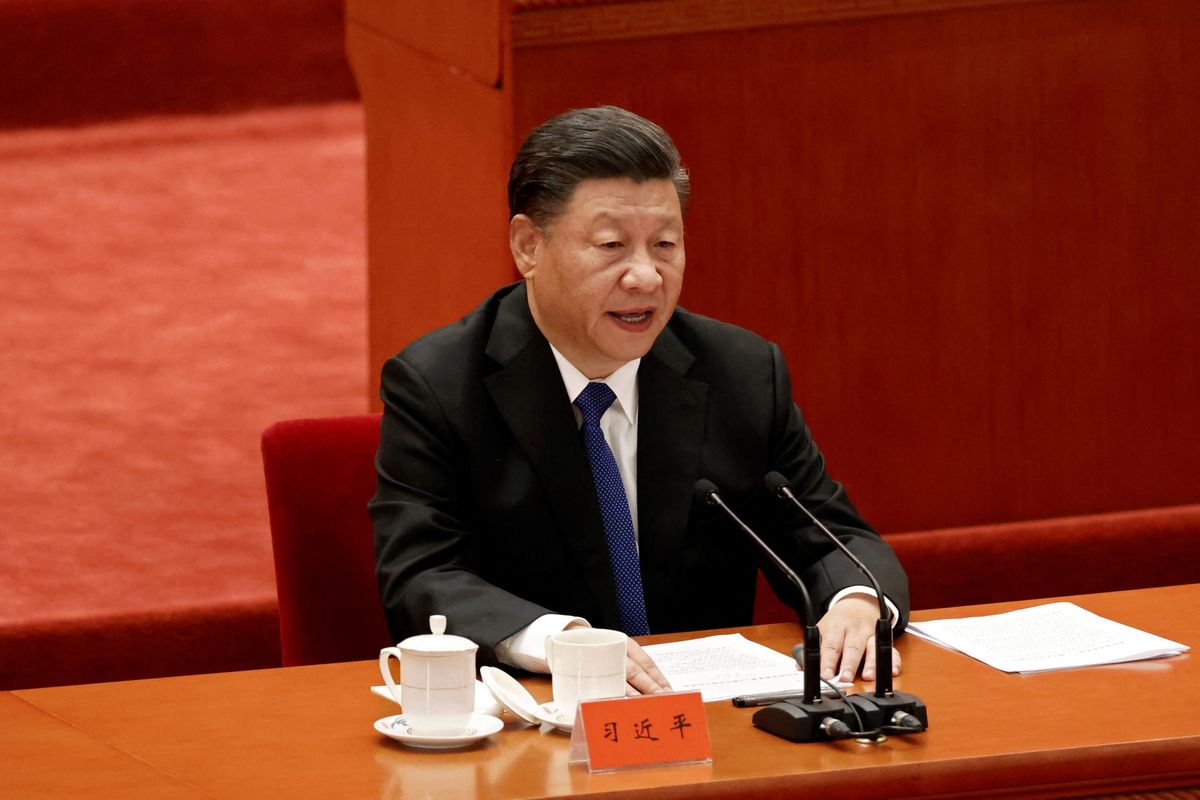US-China relations: What did Xi say at the World Economic Forum?

A few minutes every morning is all you need.
Stay up to date on the world's Headlines and Human Stories. It's fun, it's factual, it's fluff-free.
“Countries are not riding separately in some 190 small boats, but are rather all in a giant ship on which our shared destiny hinges. Small boats may not survive a storm, but a giant ship is strong enough to brave a storm,” said Xi.
How did US and China relations get to this point?
- In 2006, China surpassed Mexico as the United States’ second-biggest trade partner, right behind Canada.
- This came after President Bill Clinton signed the US-China Relations Act of 2000 in October, which granted Beijing permanent normal trade relations with the US and a spot in the World Trade Organization (WTO) in 2001.
- Things started to change in 2012 when the US trade deficit with China rose from US$273.1 billion in 2010 to an all-time high of US$295.5 billion in 2011.
- In 2018, former President Donald Trump announced massive tariffs on Chinese imports, worth at least US$50 billion.
- Trump also accused China of technology and intellectual property (IP) theft. And, throughout Trump’s presidency, he continued to impose these tariffs, straining the relationship between the two countries.
- When President Biden took office, relations stabilized. However, he still looked to compete with China over economic issues while confronting them and cooperating with them on others, such as climate change.
What did President Xi say earlier this week?
- Earlier this week, China’s President Xi spoke via video conference to the World Economic Forum (WEF) virtual event, where he mentioned that the world isn’t in a healthy place and countries need to work together.
- “Countries are not riding separately in some 190 small boats, but are rather all in a giant ship on which our shared destiny hinges. Small boats may not survive a storm, but a giant ship is strong enough to brave a storm,” said Xi.
- Xi continued by asking the world to “discard the Cold War mentality and seek peaceful coexistence and win-win outcomes.”
- “History has proved time and again that confrontation does not solve problems. It only invites catastrophic consequences,” added Xi. “Protectionism and unilateralism can protect no one. They ultimately hurt the interests of others as well as one’s own. Even worse are the practices of hegemony and bullying, which run counter to the tide of history.”
- Part of this message refers to how countries such as the US and China have entered into a quasi-Cold War these past few years as the relationship between these two countries deteriorated.
How has the US responded?
- As far as direct responses to President Xi’s message, the US has yet to comment.
- Despite leaving the Trump administration era, US-China relations have remained teetering as the “anti-China” sentiment became a popular bipartisan sentiment in the country.
- According to Pew Research, 67% of Americans have reported “cold” feelings toward China, with 47% indicating “very cold” feelings.
- The survey also found that these same people tended to focus on the Chinese government rather than the country’s people and culture.
- This sentiment is reflected in the White House, as some critics have noted that the Biden administration has a similar policy to the Trump administration when dealing with China.
What do critics think?
- Critics have been vocal over how the two countries will continue from here, but it’s still largely unknown what the two superpowers will do next.
- Members of the White House have regularly spoken out against China and how the country’s booming growth affects the US.
- “These policies have reinforced a zero-sum dynamic in the world economy,” Katherine Tai, the United States Trade Representative, said in October. “China’s growth and prosperity come at the expense of workers and economic opportunity here in the U.S.”
- Wang Jisi, president of the Institute of International and Strategic Studies at Peking University, is confident that the countries will eventually make amends even if it doesn’t happen immediately.
- “The domestic agendas of the United States and China in 2022 may or may not work to lessen the strain,” Wang wrote. “Therefore, the next stage of the China-US relationship is not going to be easy sailing. Yet there are enough incentives on both sides to remain sober-minded and keep the relationship manageable, since both are faced with imperatives at home.”
What’s next?
- As far as where the relationship between US and China goes from here, no one knows for sure.
- Ray Dalio, billionaire investor and vocal supporter of China, believes that the US is declining and China is the next superpower to lead the world.
- “As you can see the United States is now the most powerful empire by not much, it is in relative decline, Chinese power is rapidly rising, and no other powers come close,” writes Dalio.
- However, other prominent business magnates, such as Warren Buffett, are betting on the US. “Despite some severe interruptions, our country’s economic progress has been breathtaking … Our unwavering conclusion: Never bet against America,” Buffett said in February of last year.
- The rest of the world is waiting to see what happens next as the tensions between the two countries continue. And, whether or not the US will respond to President Xi’s calls for international cooperation has yet to be determined.
You drive the stories at TMS. DM us which headline you want us to explain, or email us.







Comments ()